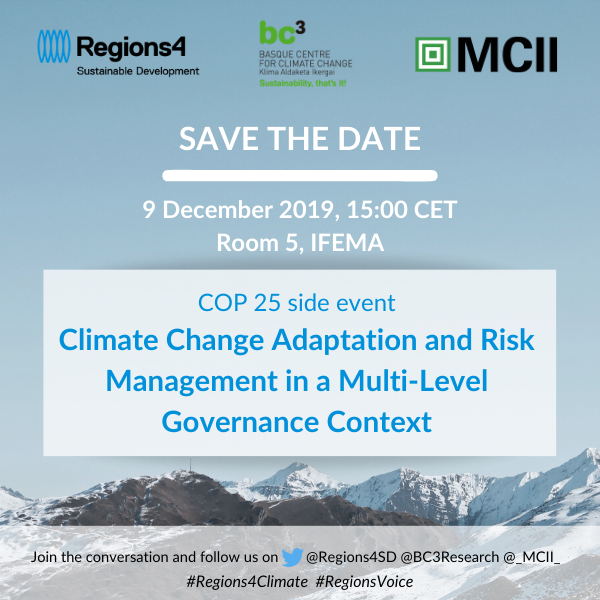July 5, 2019
Published by BC3Research Elisa Sainz de Murieta Ibon Galarraga at July 5, 2019
Categories
Tras el informe especial del Panel Intergubernamental para el Cambio Climático de Naciones Unidas (IPCC) alertando de los efectos del calentamiento global y la necesidad urgente de limitar el aumento de la temperatura media del planeta a 1,5C, expertos de algunos de los principales centros europeos de investigación analizarán las claves científicas y políticas para alcanzar este objetivo en la 10ª edición de la Escuela de Verano sobre Cambio Climático que coorganizan BC3 y la Universidad del País Vasco
November 19, 2019
Published by BC3Research at November 19, 2019
Categories
Different lines of evidence suggest that divergence in plasticity plays a key role in adaptation to global environmental change. Many scientists argue that genetic variation in plastic responses to the environment (G × E) could be an important predictor of species' vulnerabilities to climate change. But there is not a general pattern among either experimental or theoretical studies. Plasticity acting at the level of the individual is considered a rapid mechanism for surviving under rapidly changing conditions. But plasticity can also retard adaptation by shifting the distribution of phenotypes in the population, shielding it from natural selection. We know that not all plastic responses are adaptive. I will illustrate some examples of ecological traps, and, for the case of plants, the paradoxical decision regarding roots that we are far from understanding and modelling. Plasticity may buy time for populations, but whether it will be enough, given the rate of environmental change, is unknown.
Do you like it?
December 4, 2019
Published by BC3Research at December 4, 2019
Categories
In the framework of the COP25, this side event will discuss the topics of climate change adaptation and disaster risk financing as a multi-level governance challenge. Organised by Regions4 Sustainable Development, in collaboration with the Basque Centre for Climate Change (BC3) and the Munich Climate Insurance Initiative (MCII), it will highlight good practices and experiences from different levels of government. It will further reveal common challenges and provide recommendations for policymakers that could guide the development and implementation of national, regional and local adaptation plans and strategies.
Do you like it?
December 5, 2019
Published by BC3Research at December 5, 2019
Categories
Participation of researcher Elisa Sainz de Murieta.
Do you like it?




